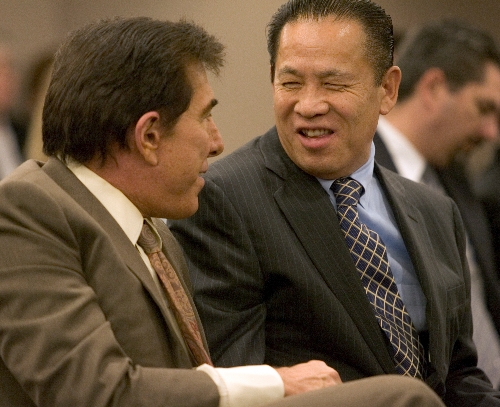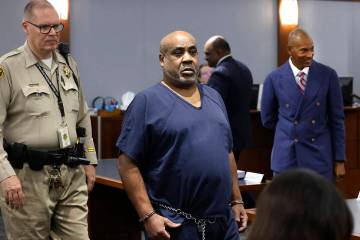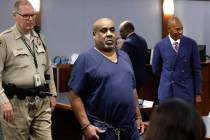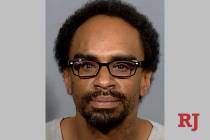Wynn makes case against partner
To bolster the case that Kazuo Okada should not be allowed to vote his former holdings at the Wynn Resorts Ltd. annual meeting, chairman and CEO Steve Wynn weighed in with his own recounting of the potential dangers.
Although he has previously laid out his position in interviews and statements, Wynn entered a signed statement for the first time in the case the company filed on Thursday night in Clark County District Court. This comes in the run-up to the Oct. 2 hearing to determine whether Okada and his Aruze USA can vote their approximately 20 percent stake at the Nov. 2 annual meeting, and just three days after Okada sent a letter to Wynn shareholders soliciting their votes for his two nominees to the board.
Much of his statement recounts events that led to the formation of Wynn Resorts a decade ago. In seeking to vote at the annual meeting, Okada has contended the legal arrangement governing his shares does not allow a forced redemption.
The company's board approved terms of a forced redemption in February at a 30 percent discount to market value, then canceled the stock.
"The suggestion that Mr. Okada was somehow deceived on this point when he made his contribution to Wynn Resorts (in 2002) is completely untrue," Wynn said in the court statement.
Redemption was always a part of the deal, he said, in case Nevada authorities denied Okada a gaming license during the company's formative days.
Further, Wynn denied he and the company decided to punish Okada for voting against a $135 million contribution to the University of Macau in April 2011.
"The fact is that Mr. Okada objected to the Macau pledge after the company was already investigating him," Wynn said.
Wynn reiterated past statements that the rupture between him and his once-close business partner began in 2010 with Okada's efforts to build a huge gaming resort in the Philippines. Wynn opposed this as potentially hurting the company's properties in Macau and that Okada's methods of wooing government officials there crossed into corruption and potentially endangered the Wynn Resorts gaming license.
In his letter to shareholders, Okada depicted the redemption as the end result of his dissent on the Macau pledge. "In one fell swoop, Mr. Wynn and his board ... acted to quell dissent and consolidate power at Wynn Resorts by disenfranchising the company's shareholder," Okada wrote.
Contact reporter Tim O'Reiley at
toreiley@reviewjournal.com or 702-387-5290.






















